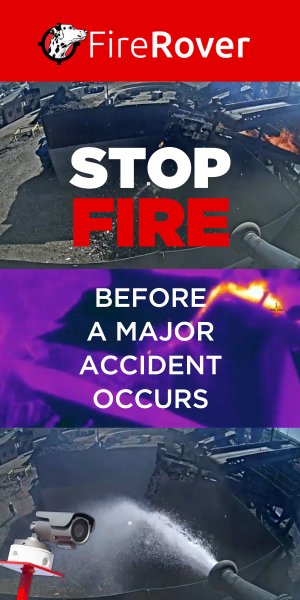Since 2015, ISRI and the Occupational Health and Safety Administration (OSHA) have formally collaborated to educate and communicate with recyclers. In her presentation at the June 22 ISRI Safety & Environmental Council (ISEC) meeting, Christina Morgan, an OSHA safety and occupational health specialist, provided an overview of the alliance, and explained how compliance assistance, outreach, and other OSHA initiatives can help ISRI members.
In the 50 years since OSHA’s establishment, workplace fatalities have drastically declined, from 38 workers per day in 1970 to 15 per day in 2019. Rates of worker injuries and illnesses are also down, from 10.9 incidents per 100 workers in 1972 to 2.8 per 100 in 2019. “We’ve made great progress, but there’s more we can do to reach the goal of zero worker fatalities, injuries, and illnesses,” Morgan says.
In Morgan’s experience, people tend to think of OSHA primarily as an enforcement agency, but that’s only one aspect of what it does. Enforcement is an important tool to use for employers who aren’t meeting their obligations; in a given year, OSHA can only inspect a small portion of U.S. workplaces. OSHA’s outreach, training, and compliance assistance efforts come to mind less frequently, Morgan notes, but are essential, proactive tools for fulfilling the agency’s mission.
OSHA’s On-Site Consultation Program, for example, provides free, confidential occupational safety and health services upon request to small and medium-sized businesses, with priority given to higher-hazard operations. The program is completely separate from OSHA enforcement and doesn’t issue citations or penalties. “The scope of what consultants look at can be up to you,” Morgan explains.
Consultants will evaluate your workplace, or the specific operations you designate, and discuss applicable OSHA standards and hazards that may pose safety or health risks to your workers. Consultants can help employers improve, energize, or start a new safety and health program. Consultation programs typically conduct more than 25,000 visits annually. Due to the COVID-19 pandemic, consultants made 17,663 visits in fiscal 2020, including 1,179 virtual calls.
OSHA also facilitates workplace safety and health training across the country. The OSHA Outreach Training Program provides training on the recognition, avoidance, abatement, and prevention of workplace hazards, as well as on worker rights and employer responsibilities. The 10-hour training program is primarily intended for entry-level workers. The 30-hour training program provides workers who have some safety responsibility a greater depth and variety of training. OSHA-authorized trainers, who are independent service providers, trained more than 1 million students in fiscal 2020.
OSHA Training Institute Education Centers are a U.S. network of nonprofits authorized by OSHA to deliver occupational safety and health training to public- and private-sector workers, supervisors, and employers. More than 50 courses are available, including train-the-trainer courses. The centers teach thousands of students annually; courses continued even during the pandemic. “The education centers adapted their curriculum to accommodate virtual learning,” Morgan notes. Each of OSHA’s 10 regions has at least one education center.
In addition to providing compliance assistance and training, OSHA has a number of cooperative programs, including the Alliance Program, through which businesses, trade groups, and labor organizations collaborate with the agency in support of its mission. “The Alliance Program is an important vehicle for establishing relationships with groups that share our goal of promoting worker safety and preventing fatalities, injuries, and illnesses,” Morgan explains.
OSHA has 37 national alliances with trade and professional organizations, labor unions, educational institutions, community and faith-based groups, and government agencies. Alliances promote information sharing and collaboration between OSHA and other program participants; enhance efforts to reach high-hazard recognition; respond to emerging hazards; and protect at-risk workers.
“At its core, the Alliance Program is about building and maintaining strong stakeholder relationships, and expanding OSHA’s outreach to high-hazard industries and at-risk workers,” Morgan says. The program also helps OSHA address emerging workplace safety and health issues. “Our alliance with ISRI has enabled us to learn more about emerging hazards in the scrap recycling industry, such as fire and explosions associated with lithium-ion batteries,” she adds.
Signed in 2015 and renewed in 2020, the ISRI-OSHA alliance aims to provide ISRI members and other stakeholders in the recycling industry with information and resources that will help them protect worker health and safety. The alliance seeks to encourage ISRI chapters, members, and stakeholders to build relationships with and seek assistance from OSHA. ISRI and OSHA provide opportunities for each organization to participate, speak, and exhibit at their events, OSHA’s Alliance Program Forum, and ISEC meetings.
The ISRI-OSHA alliance has several planned activities:
- Webinars for ISRI members and stakeholders on OSHA’s inspection process, and on ISRI members’ experiences with OSHA’s On-Site Consultation Program and Safety and Health Achievement Recognition Program (SHARP).
- Safety and health promotions, including the Safe + Sound Campaign and annual Safe + Sound Week.
If you have suggestions on ways OSHA and ISRI can collaborate to promote worker safety in the recycling industry, please email Morgan or contact Tony Smith, ISRI’s vice president of safety, at (202) 662-8500 ext. 129 or email.













